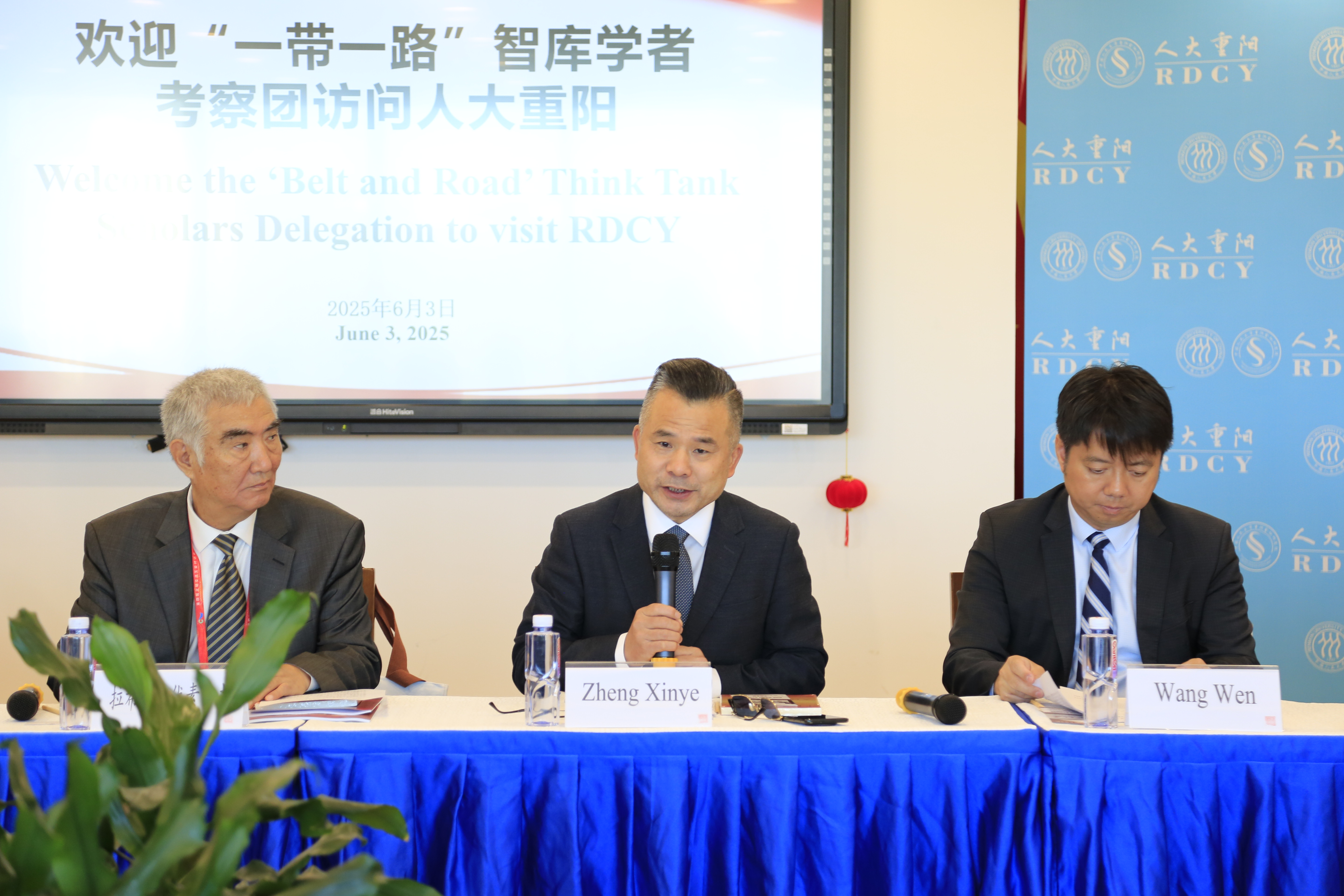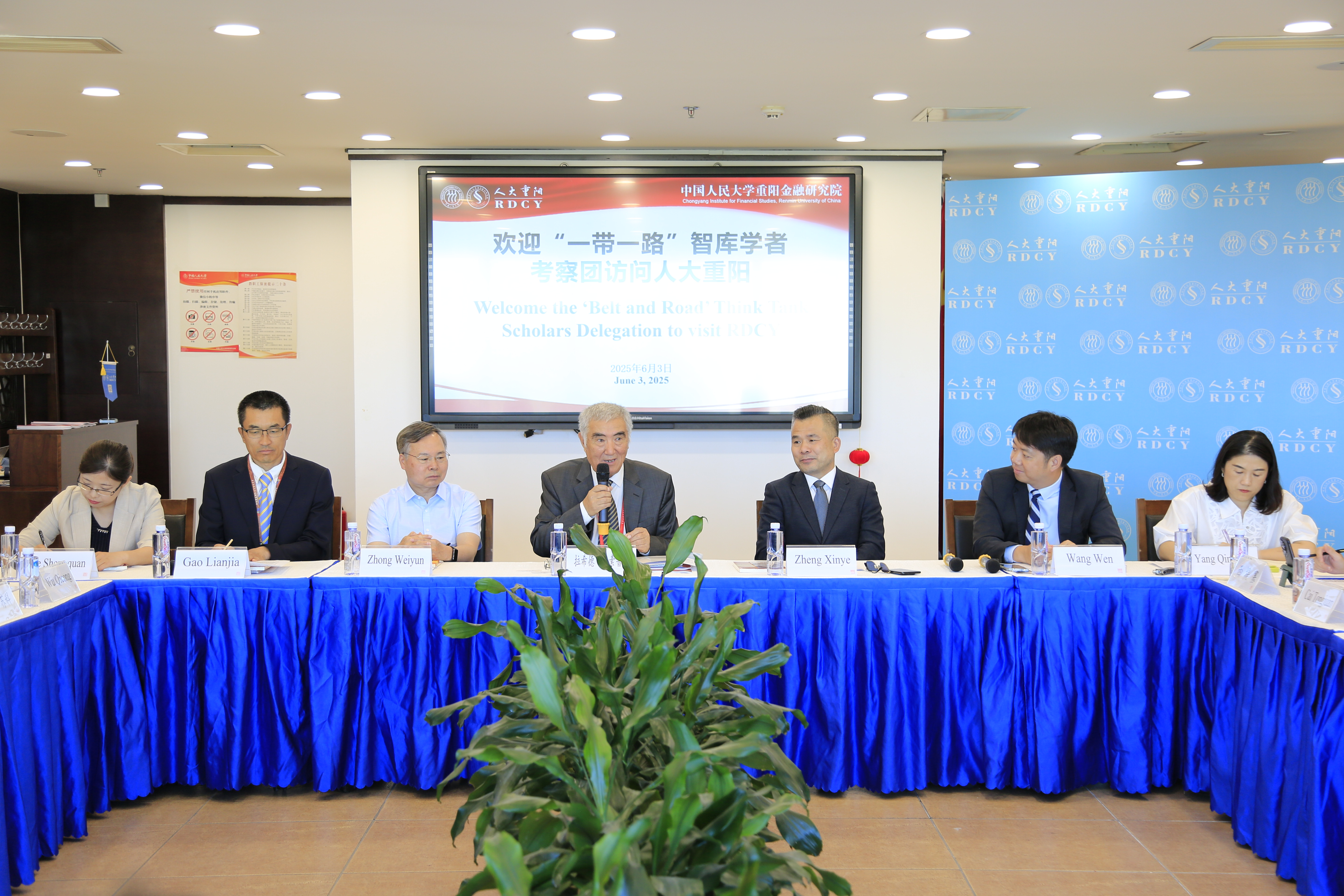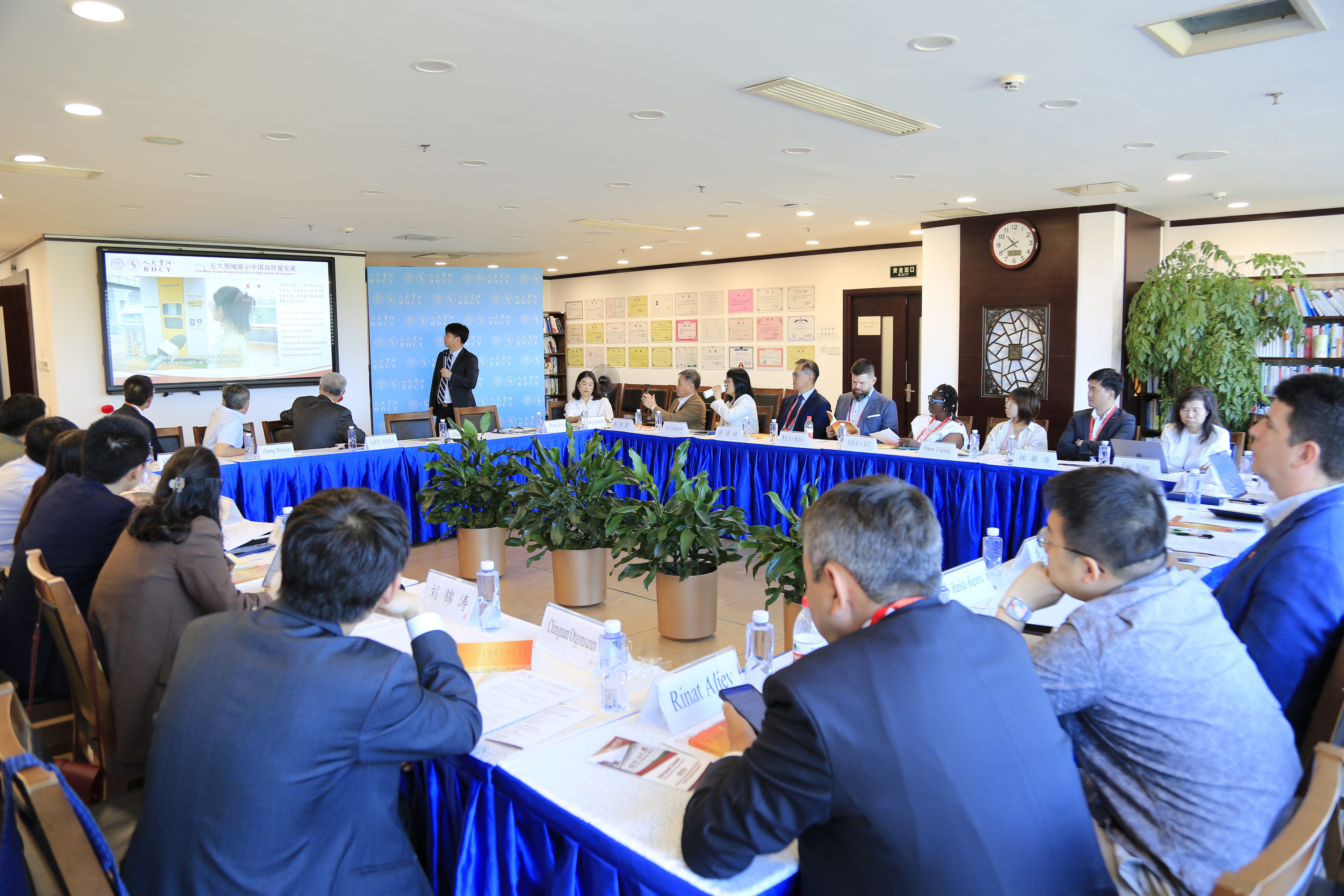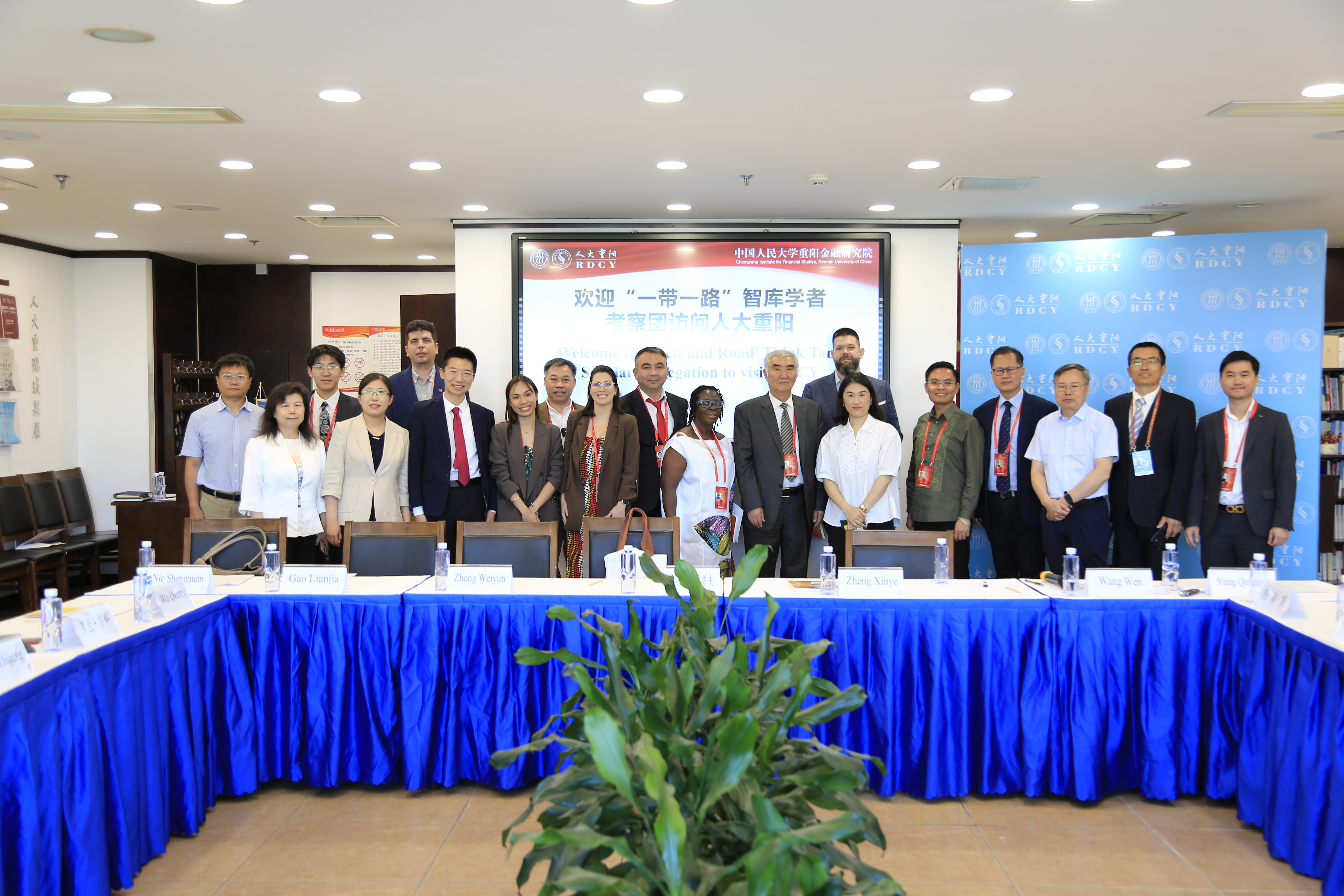LATEST INSIGHTS
Your Present Location: LATEST INSIGHTSBRI Think Tank Scholars from 11 Countries Visited RDCY
BRI Think Tank Scholars from 11 Countries Visited RDCY
On June 3, 2025, with support from the International Department Central Committee of CPC, a delegation of 12 scholars of "Belt and Road" think tanks from 11 countries visited the Chongyang Institute for Financial Studies at Renmin University of China (RDCY). The two sides held in-depth exchanges on topics including Belt and Road cooperation, the global communication of Chinese culture, and collaboration among think tanks, universities, and institutions from China and abroad. Zheng Xinye, Vice President of Renmin University of China, and Rashid Yusupov, head of the delegation and Director of the Center for Belt and Road Studies of Kyrgyz State University, delivered remarks. Wang Wen, Dean of RDCY and the School of Global Leadership, moderated the event and delivered a keynote speech.

Zheng Xinye emphasized that Renmin University of China, is the first comprehensive research university established by the People’s Republic of China. Its predecessor was Shanbei Public School, founded in 1937 during Chinese People's War of Resistance Against Japanese Aggression. Since its founding, the university has remained closely aligned with the Party and the nation, maintaining its leading position in the field of humanities and social sciences in China. Today, it is forging a new path toward building a world-class university and promoting excellence in higher education. In 2024, Renmin University of China established the School of Global Leadership with the aim of working alongside the world—especially the Global South—to cultivate global leaders capable of ensuring food and energy security, safeguarding peace and development, and promoting sustained and healthy economic growth worldwide.

Rashid Yusupov expressed his gratitude for the Fourth Dialogue on Exchanges and Mutual Learning Among Civilizations, which provided the opportunity for the delegation to visit Renmin University. He noted that the visit deepened the scholars' understanding of China's development achievements. The journeys to Dunhuang and Jiayuguan showcased the revived brilliance of the ancient Silk Road and left the international scholars deeply impressed by the richness of Chinese civilization. He stressed the importance of civilization dialogue in fostering people-to-people ties and building global consensus on development, and voiced his willingness to expand cooperation with Renmin University in academia and research, jointly building bridges for mutual learning among civilizations.

Following this, Wang Wen delivered a keynote speech titled “Compound Interest of Big Power: Re-evaluate the Value of Chinese Assets and Visions for 2035.” Using the concept of “compound effects” as a theoretical framework, he systematically outlined China’s sustainable development model built across five sectors: new livelihoods, new consumption, new manufacturing, new infrastructure, and new services. He also analyzed six key reform battles—anti-poverty, anti-blockade, anti-pollution, anti-corruption, anti-hegemony, and anti-crises—as pathways to overcome developmental bottlenecks. Looking ahead to 2029 and 2035, he presented seven projections for China’s future across the economy, democracy, culture, livelihoods, environment, national security, and national governance.

Representatives from 11 countries participated in the discussions, including those from the Center for Belt and Road Studies of Kyrgyz State University, the Center for China Studies at National University of Laos, the Davao City Chamber of Commerce and Industry from the Philippines, the Institute of China Studies at the University of Malaya, the Institute of China and Contemporary Asia of the Russian Academy of Sciences, the Afri-China Media Centre from Nigeria, the Wekerle Business School from Hungary, the Asian Vision Institute from Cambodia, the Belt and Road Institute from Serbia, the National Institute of Strategic Initiative under the President of the Kyrgyz Republic, Ateneo de Davao University from the Philippines, the Brazilian Army Command and General Staff School, and the Strategic Research Institute of the Mongolian People’s Party.
Members of the visiting delegation expressed that, through people-to-people exchanges with Chinese think tank experts and their visit to China, they gained a profound appreciation of the country’s remarkable achievements in economic development, ecological progress, and innovation in science, technology, and culture. They also developed a deeper understanding and stronger recognition of the Belt and Road Initiative and the importance of promoting mutual learning among civilizations. Many voiced their hope to strengthen exchanges and cooperation with various sectors in China and to advance global academic and people-to-people exchanges across cultures.
Staff from RDCY’s Research Department and International Department engaged in exchanges and dialogue with the delegation on topics including the Belt and Road Initiative, Global South cooperation, and the evolving international order.
Key Words: BRI, think tank























































































 京公网安备 11010802037854号
京公网安备 11010802037854号





